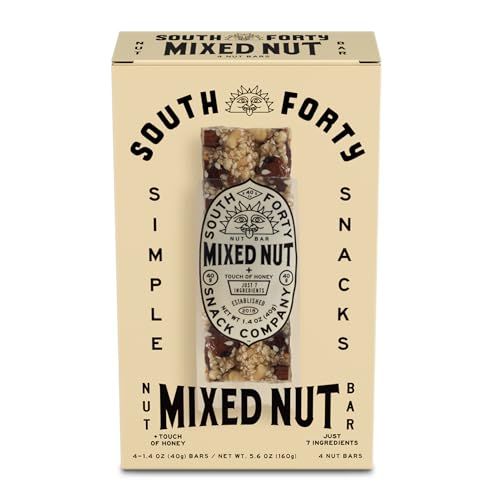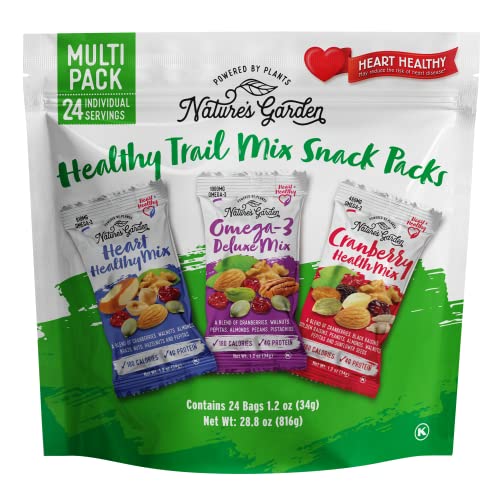We all love snacks, but did you know that the right ones can boost your digestive health? It’s amazing how simple choices can make a big difference in how our bodies feel and function. I’ve discovered that snacking doesn’t have to be just about satisfying cravings; it can also support a happy gut.
Understanding Digestive Health
Digestive health involves the proper functioning of the digestive system, which includes the esophagus, stomach, intestines, and other organs. A healthy digestive system efficiently processes food, absorbs nutrients, and eliminates waste. It affects overall well-being, energy levels, and even mood.
I focus on how my food choices impact this system. Eating high-fiber snacks promotes regular bowel movements and prevents constipation. Fiber-rich options like fruits and vegetables, nuts, and whole grains support a healthy gut microbiome. They provide prebiotics and probiotics that balance gut flora and enhance digestion.
Hydration also plays a crucial role in digestive health. Drinking enough water aids digestion by helping break down food, allowing nutrients to be absorbed more effectively.
Certain snacks contain enzymes and probiotics that directly contribute to digestive health. Foods like yogurt and kefir contain beneficial bacteria that support gut function. Additionally, fermented snacks, like sauerkraut and kimchi, can enhance digestion and nutrient absorption.
Choosing the right snacks, rich in nutrients, can significantly benefit digestive health. By prioritizing healthy snacks and food choices, I can create a thriving environment for my gut, leading to improved energy and well-being.
Importance of Snacks for Digestive Wellness
Snacks play a crucial role in supporting digestive health, offering more than just temporary satisfaction. Choosing the right snacks can significantly enhance your overall well-being, promoting a happier gut.
Nutrients That Support Digestion
I focus on specific nutrients that contribute to digestive health.
- Fiber: High-fiber snacks, like vegetables, fruits, and whole grains, encourage regular bowel movements. For example, incorporating snacks like apple slices with almond butter or carrot sticks with hummus keeps digestion smooth.
- Probiotics: Fermented snacks, such as yogurt and kefir, introduce beneficial bacteria to your gut. These snacks help balance gut microbiomes and improve nutrient absorption.
- Hydration: Staying hydrated is essential for digestion. Drinking water-rich snacks like cucumbers or watermelon not only quenches thirst but also aids in digesting other foods.
Choosing nutrient-dense snacks is vital for maintaining a healthy digestive tract.
Timing and Frequency of Snacking
I find that timing and frequency impact digestive wellness.
- Regular Intervals: Snacking every 3 to 4 hours keeps energy levels steady and digestive flow optimal. It prevents overeating during meals and maintains stable blood sugar levels.
- Pre-Meal Snacks: A light snack before meals engages digestion without spoiling appetite. A handful of nuts or a piece of fruit prepares your stomach for a meal without overwhelming it.
- Mindful Choices: Listening to your body is key. Opt for nutritious snacks only when you feel hungry, allowing for better digestion and overall satisfaction with your eating habits.
By making conscious snacking decisions, digestive wellness can thrive, leading to better energy levels and an improved mood.
Best Snacks for Better Digestive Health
Choosing the right snacks can truly transform your digestive health. I’m passionate about creating delicious, healthy snacks that not only satisfy cravings but also nourish your gut. Here are some great options to consider.
Fiber-Rich Options
Fiber plays a crucial role in maintaining digestive health. I love incorporating fiber-rich snacks into my day. Here are a few of my favorites:
- Chia Seed Pudding: Soaking chia seeds in almond milk overnight creates a delightful pudding packed with fiber.
- Apple Slices with Nut Butter: The crunch of apples combined with nut butter delivers fiber and healthy fats in a tasty bite.
- Vegetable Sticks with Hummus: Carrots, celery, and bell peppers dipped in hummus make for a crunchy, fiber-filled snack.
- Whole Grain Crackers: These pair well with avocado or cheese and provide a substantial fiber boost.
- Popcorn: Air-popped popcorn offers fiber and can be seasoned with your favorite spices for added flavor.
Including these high-fiber options in your snacking routine promotes regular bowel movements and supports a healthy gut microbiome.
Probiotic Snacks
Probiotics also play a vital role in digestive health by introducing beneficial bacteria to the gut. I’m always on the lookout for probiotic snacks that are both tasty and gut-friendly:
- Yogurt: Choose plain Greek yogurt for a creamy snack rich in probiotics. Top it with fresh fruit or a sprinkle of granola for added crunch.
- Kefir: This fermented drink provides a tangy alternative to yogurt and is packed with probiotics.
- Sauerkraut or Kimchi: Fermented vegetables like sauerkraut and kimchi add a zesty crunch while supporting gut health.
- Fermented Snacks: Look for snacks like kombucha or miso-infused crackers to boost your intake of friendly bacteria.
Incorporating these probiotic-rich snacks helps enhance digestion and nutrient absorption, making your gut happy and healthy.
Staying mindful about your snacks can elevate your digestive well-being. Mixing fiber-rich and probiotic choices creates a dynamic snacking experience that is beneficial for health.
Foods to Avoid for Optimal Digestion
Choosing the right snacks can transform your digestive health, but it’s equally important to be aware of what to avoid. Certain foods can interfere with digestion and lead to discomfort.
- Processed Foods: Processed snacks, like chips and granola bars, often contain added sugars and unhealthy fats. These ingredients can disrupt digestive processes and lead to bloating.
- High-Fat Foods: Fatty snacks, such as fried foods and fatty meats, slow down digestion. Avoiding these heavy options promotes quicker digestive movement and comfort.
- Refined Carbohydrates: White breads, pastries, and sugary cereals lack fiber. Choosing whole grain alternatives supports digestive health by promoting regular bowel movements.
- Dairy Products: For some individuals, dairy causes gas and bloating. If you’re lactose intolerant, skipping milk, cheese, and cream can improve digestive comfort.
- Artificial Sweeteners: Found in many “sugar-free” snacks, artificial sweeteners can lead to gastrointestinal distress. Opting for natural sweeteners or whole fruits avoids uncomfortable symptoms.
- Spicy Foods: While tasty, overly spicy snacks can irritate the digestive tract, especially for sensitive stomachs. Moderation is key to preventing discomfort.
- Carbonated Beverages: The bubbles in sodas can cause gas and bloating. Choosing still water or herbal teas supports digestion better.
- Caffeinated Snacks: Excessive caffeine can lead to digestive issues like acid reflux. Limiting caffeinated snacks helps maintain a settled stomach.
By avoiding these common digestive offenders, I can create a repertoire of snacks that not only tastes great but also promotes a healthy gut. When I snack mindfully, it fuels my passion for healthy eating and cooking while keeping my digestive system happy.
Tips for Healthy Snacking Habits
Creating healthy snacking habits can enhance digestive health. Here’s how I approach it:
- Snack Wisely: I choose snacks that combine fiber and healthy fats, like apple slices with almond butter. This combination keeps me full and supports my gut.
- Stay Hydrated: I drink water throughout the day and include snacks with high water content, such as cucumbers or watermelon. Hydration promotes digestion and overall well-being.
- Snack Every Few Hours: I keep my energy levels steady by snacking every 3 to 4 hours. This routine prevents energy dips and helps maintain digestive flow.
- Mind the Timing: I snack before meals to engage my digestion. This approach prepares my body for the upcoming meal without spoiling my appetite.
- Listen to Your Body: I pay attention to hunger cues. Eating when I’m genuinely hungry promotes mindful snacking and prevents overeating.
- Mix It Up: I love combining different types of snacks, such as high-fiber snacks and probiotic-rich options like yogurt or kefir. This diverse mix fosters a healthy gut microbiome and keeps snacking exciting.
- Avoid Problematic Foods: I steer clear of processed snacks, high-fat options, and refined carbs. These foods disrupt digestion and lead to discomfort.
With mindful choices and a focus on nutrient-dense snacks, healthy snacking can be a delightful and beneficial part of daily life.
Conclusion
Making mindful snack choices can truly transform our digestive health. By opting for fiber-rich and probiotic-packed snacks I can support my gut and enhance my overall well-being. It’s amazing how something as simple as snacking can have such a big impact.
I’ve learned that staying hydrated and listening to my hunger cues are key to creating a positive snacking experience. With a little creativity and awareness I can enjoy delicious snacks that not only satisfy my cravings but also keep my digestive system happy.
So let’s embrace these tasty options and make snacking a delightful part of our journey to better digestive health. Cheers to happier guts and healthier lives!












